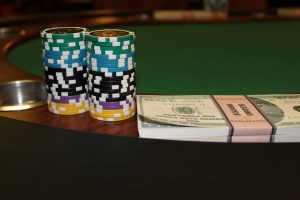In my first blog post, I shared my theory about casino players being underdogs. That’s so simply because the house always has an edge over the players, even if that edge is quite insignificant at certain games, such as some blackjack variations, but we’ll talk about that in detail some other time.
 However, you shouldn’t play the victim and just give up on trying to improve your conditions as a player. It’s not only you that gets exploited by the casino system. We’re all in the same boat but some are using whatever they can find to paddle and others are just throwing money into the ocean trying to build a bridge.
However, you shouldn’t play the victim and just give up on trying to improve your conditions as a player. It’s not only you that gets exploited by the casino system. We’re all in the same boat but some are using whatever they can find to paddle and others are just throwing money into the ocean trying to build a bridge.
There are, actually, some celebrity underdogs. Have you heard of Phil Ivey? You probably know him as one of the greatest pro poker players of all times. Lately, however, he’s been in the news with two lawsuits. It turns out that in 2012, Ivey and his casino partner Cheng Yin Sun noticed a defect in a certain brand of cards and exploited that in a few sessions of baccarat at two casinos – the Crockfords Club in Mayfair in London and the Borgata in Atlantic City. As a result, the players won £7.7m in London and $10.1m in Atlantic City.
Two years later, in 2014, both casinos filed similar lawsuits, claiming Ivey had cheated and won by using “edge sorting”. The Borgata management went so far as to claim they were a victim because they had agreed to 5 unusual requests, such as to turn the cards 180 degrees, because they trusted Ivey. The Borgata representatives accused Ivey of getting an advantage over the house.
Imagine one of the most powerful casinos in the world, a gaming landmark, claiming they were too naïve and were fooled by a single player into giving him over 10 million dollars. And all that when “edge sorting” is not illegal in the first place! And what a double standard! Casinos all over the world take millions out of players by the minute, using their advantage over the players, which is ingrained in the game rules, but when a player uses his cunning and skills to gain advantage, he’s a villain.
 Ivey never got the money from Crockfords Club and was recently ordered by a federal judge to return the money he’d won from the Borgata. While, at the same time, I’m pretty sure, a lawsuit with the roles exchanged would have simply been dismissed and laughed at. The fact that Ivey is a public person makes it even better for the casino industry to turn him into an example of what happens when you mess with casinos.
Ivey never got the money from Crockfords Club and was recently ordered by a federal judge to return the money he’d won from the Borgata. While, at the same time, I’m pretty sure, a lawsuit with the roles exchanged would have simply been dismissed and laughed at. The fact that Ivey is a public person makes it even better for the casino industry to turn him into an example of what happens when you mess with casinos.
Actually, the casino conspiracy, though it’s no conspiracy really as it’s put there in plain English even if it comes in fine print, is that no one can beat the house, less so hope to do so all the time. If I may paraphrase the quote often wrongfully attributed to Abraham Lincoln, “You can fool all of the people some of the time and some of the people all of the time, but you cannot fool all of the people all of the time”, it would go something like this: You can win at some casino games some of the time but you cannot win at any of them all of the time.